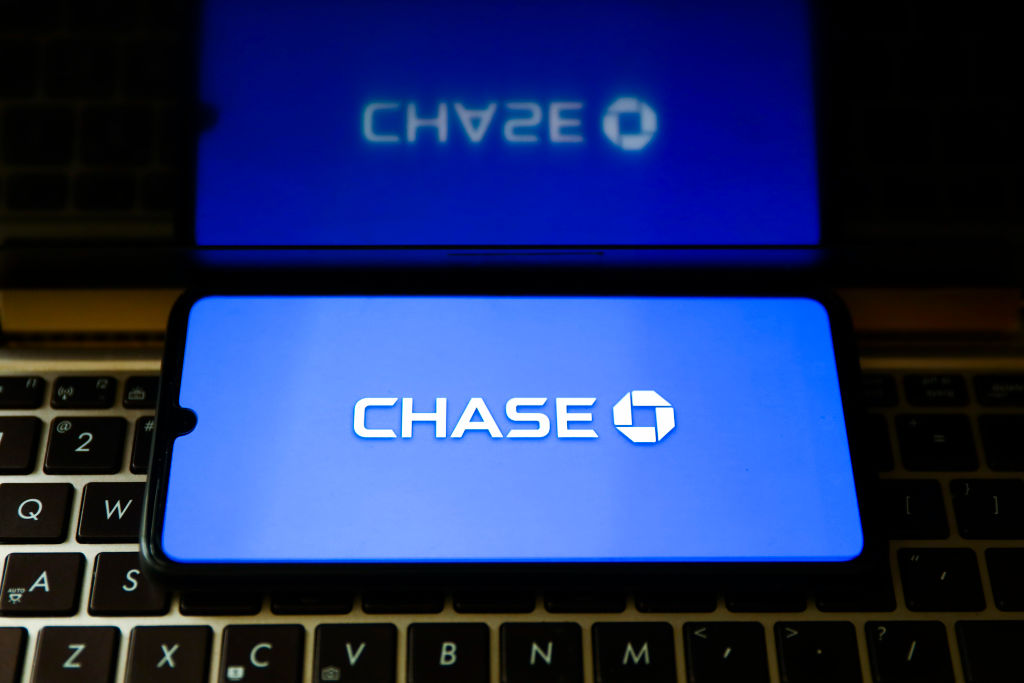Chase cuts interest rate on boosted savings account to 4.5% – is it worth it?
Chase’s Boosted Saver rate has fallen following the Bank of England’s decision to cut interest rates. Is it still worth it, and who is eligible?


Get the latest financial news, insights and expert analysis from our award-winning MoneyWeek team, to help you understand what really matters when it comes to your finances.
You are now subscribed
Your newsletter sign-up was successful
Want to add more newsletters?

Twice daily
MoneyWeek
Get the latest financial news, insights and expert analysis from our award-winning MoneyWeek team, to help you understand what really matters when it comes to your finances.

Four times a week
Look After My Bills
Sign up to our free money-saving newsletter, filled with the latest news and expert advice to help you find the best tips and deals for managing your bills. Start saving today!
Chase Bank has cut the interest rate on its boosted savings account, meaning savers can now only earn up to 4.5% AER.
This rate, which includes a six-month 1.75% AER (fixed) bonus rate, was previously 4.75% (variable).
However, the standard saver rate tracks 1.50% below the Bank of England’s base rate. After the Bank of England lowered the base rate by 25 basis points to 4.25% on 8 May, Chase has now reduced the Saver rate.
MoneyWeek
Subscribe to MoneyWeek today and get your first six magazine issues absolutely FREE

Sign up to Money Morning
Don't miss the latest investment and personal finances news, market analysis, plus money-saving tips with our free twice-daily newsletter
Don't miss the latest investment and personal finances news, market analysis, plus money-saving tips with our free twice-daily newsletter
Nevertheless, the Chase Saver with Boosted Rate remains one of the best easy access savings accounts currently on the market.
Customers who want to take advantage of the offer can earn 4.5% for six months before the 1.75% AER boost offer expires – although the underlying rate is variable, so it could change.
Once the bonus period ends, the Chase saver will pay 2.75% AER (variable), correct at the time of writing.
Caitlyn Eastell, spokesperson at Moneyfactscompare.co.uk, said the account “continues to take a highly competitive position in the easy access with bonus market”.
She added: “Savers looking for flexibility with their cash may find this an ideal option. There is no minimum opening amount required, however, there is a £25,000 daily external transfer limit so consumers with larger pots may wish to consider carefully.”
How does the Chase Boosted Saver compare to other accounts?
In terms of interest rates, the Chase account is still one of the best savings accounts on the market right now, but trails behind some other options.
Revolut Ultra’s Instant Access Savings outpaces the interest on the Chase account as it pays 5%, but the offer is only available to Revolut Ultra customers who pay a £55 a month fee.
Chip’s Easy Access Saver pays interest of 4.77%, although this includes a boosted rate of 1.52% for 12 months.
The Chase Saver’s underlying rate is variable, which means it could drop further if the Bank of England cuts the base rate on 19 June when its Monetary Policy Committee (MPC) next meets.
In the unlikely event that the MPC decides to increase interest rates, the Chase rate would increase.
Many economists are forecasting at least one more rate cut before the end of the year, while the IMF has predicted two more reductions.
Chase’s 1.75% bonus rate is fixed for six months. This means even if the standard saver rate changes, savers will earn 1.75% on top of the standard rate.
Who is eligible for the Chase Boosted Saver?
Chase’s Boosted Saver is available only to new Chase customers, and you will have to claim the boosted rate within your first 31 days as a customer with the bank.
That means that if you are an existing customer, you will not be able to claim the deal.
Chase recently launched a separate 1.8% bonus saver rate, which was fixed for six months, available to more than two million customers. At the time, the standard saver rate was 3.00% AER (variable), meaning these savers could earn 4.8% for the bonus period – provided the underlying rate didn’t change.
Chase emailed those eligible about the deal, so customers may want to rummage through their inbox to see if they qualified.
Get the latest financial news, insights and expert analysis from our award-winning MoneyWeek team, to help you understand what really matters when it comes to your finances.

Daniel is a financial journalist at MoneyWeek, writing about personal finance, economics, property, politics, and investing.
He covers savings, political news and enjoys translating economic data into simple English, and explaining what it means for your wallet.
Daniel joined MoneyWeek in January 2025. He previously worked at The Economist in their Audience team and read history at Emmanuel College, Cambridge, specialising in the history of political thought.
In his free time, he likes reading, walking around Hampstead Heath, and cooking overambitious meals.
-
 Should you buy an active ETF?
Should you buy an active ETF?ETFs are often mischaracterised as passive products, but they can be a convenient way to add active management to your portfolio
-
 Power up your pension before 5 April – easy ways to save before the tax year end
Power up your pension before 5 April – easy ways to save before the tax year endWith the end of the tax year looming, pension savers currently have a window to review and maximise what’s going into their retirement funds – we look at how